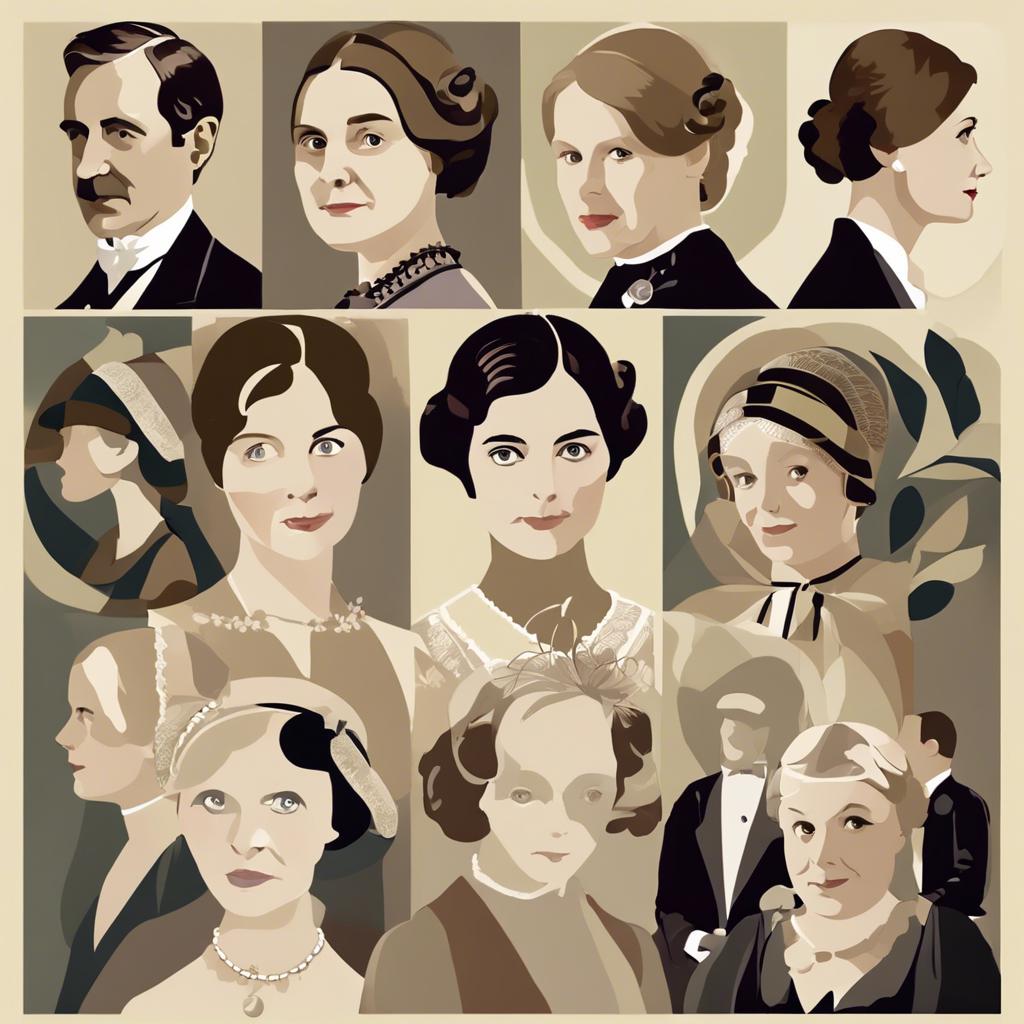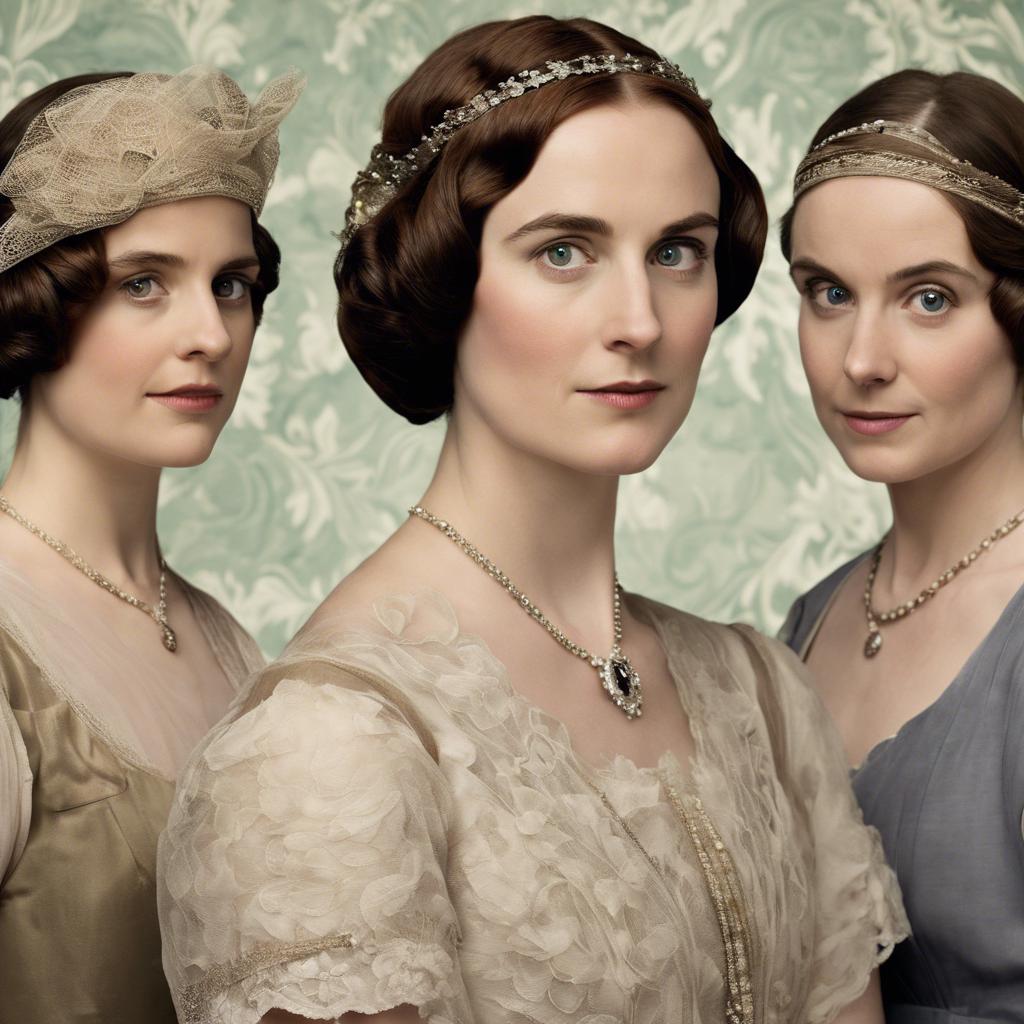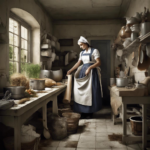In the grand estate of Downton Abbey, daughters held a unique position in the complex hierarchy of the British aristocracy. As symbols of lineage and future inheritors of their family’s legacy, these young women navigated the dynamics of society with grace and poise. Through their trials and triumphs, the daughters of Downton Abbey exemplified the shifting roles and expectations of women in the early 20th century. Join us as we delve into the fascinating world of these daughters, exploring the challenges and successes they encountered in a world bound by tradition and societal norms.
Step Into the World of Cheryl Bolen
Dive into the enchanting stories of love, intrigue, and elegance set in the Regency Era. Cheryl Bolen's novels offer timeless romance and captivating tales that will leave you wanting more.
Explore Cheryl Bolen's Books Now
The Evolution of Daughters Roles in Downton Abbey
Throughout the course of Downton Abbey, viewers witnessed a significant evolution in the roles of daughters within the aristocratic Crawley family. From the early 20th century to the 1920s, daughters transitioned from traditional societal expectations to more independent and progressive roles.
Key Changes in Daughter Roles:
- Initially limited to domestic duties and seeking suitable marriages
- Later pursuing education, careers, and activism
- Challenging gender norms and expectations
| Season | Daughter Role |
| 1-3 | Primarily focused on finding husbands |
| 4-6 | Engaged in social change and personal growth |
Impact on the Storyline: The evolution of daughters’ roles added depth and complexity to the narrative, showcasing the changing dynamics of gender roles and expectations during a transformative period in history. As the daughters of Downton Abbey navigated new opportunities and challenges, they provided a lens through which viewers could explore the broader social shifts occurring in society.
Key Themes and Marital Expectations
In the popular TV series “Downton Abbey,” play a significant role in shaping the lives of the characters, particularly the daughters of the aristocratic Crawley family. The societal norms and expectations of the early 20th century British aristocracy heavily influence the decisions and relationships of these young women. From arranged marriages to social status, these themes serve as the backdrop for the drama and tension that unfolds within the walls of Downton Abbey.
The concept of duty and responsibility is central to the portrayal of marital expectations on “Downton Abbey.” The daughters of the Crawley family are expected to marry within their social class in order to secure the family’s wealth and status. Whether it is Lady Mary navigating the complexities of finding a suitable husband or Lady Edith facing societal judgment for her actions, the pressure to fulfill their duty as daughters weighs heavily on their decisions regarding marriage.
Moreover, the theme of love versus duty is a recurring motif in the relationships of the daughters on “Downton Abbey.” While some characters, such as Lady Sybil, defy societal conventions and marry for love, others like Lady Mary must navigate the delicate balance between their personal desires and their duty to their family. These conflicts create compelling storylines that highlight the challenges of balancing personal happiness with societal expectations in the rigid world of the British aristocracy.
Challenges Faced by Daughters in a Changing Society
In the early 20th century, daughters faced unique challenges as they navigated through a rapidly changing society. From the societal expectations placed upon them to the limited opportunities for education and employment, daughters of this era had to grapple with a myriad of obstacles.
Key challenges faced by daughters included:
- Limited educational opportunities.
- Pressure to conform to traditional gender roles.
- Lack of autonomy and independence.
Despite these challenges, daughters in a changing society like the one depicted in Downton Abbey were able to challenge societal norms and pave the way for future generations of women. Through their resilience and determination, these daughters were able to carve out a space for themselves in a rapidly evolving world.
Strategies for Daughters to Navigate Social Expectations
During the Edwardian era portrayed in Downton Abbey, daughters faced numerous social expectations that dictated their behavior and interactions. To navigate these challenges, young women often utilized various strategies to maintain their reputation and place in society.
Some key strategies that daughters on Downton Abbey employed include:
- Obeying strict etiquette guidelines to avoid scandal
- Cultivating relationships with influential individuals to gain social standing
- Participating in charitable activities to showcase their moral character
By carefully navigating social expectations and utilizing these strategies, daughters on Downton Abbey were able to thrive in a society that placed a high value on reputation and propriety.
Concluding Remarks
the daughters of Downton Abbey exemplify the complex roles and responsibilities faced by women during the early 20th century. Their resilience, grace, and determination in navigating societal expectations and personal challenges serve as a poignant reminder of the strength and courage displayed by women of all backgrounds in the face of adversity. As we bid farewell to the beloved characters of Downton Abbey, let us continue to honor and celebrate the enduring legacy of these daughters who defied conventions and blazed their own paths in a rapidly changing world. Their stories will continue to inspire and resonate with audiences for generations to come.


